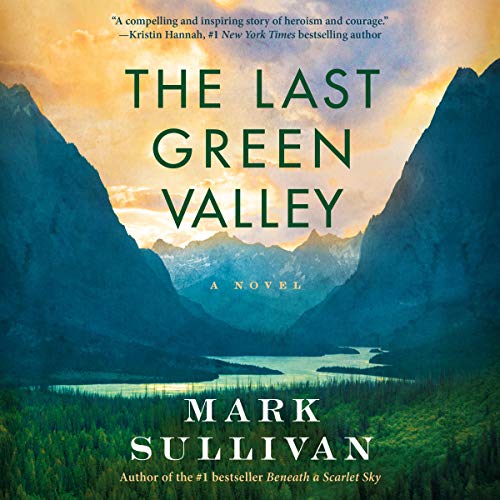Title: An Immersive Journey Through “The Last Green Valley”
In the vast tapestry of literary works exploring the natural world, Mark Sullivan’s “The Last Green Valley” stands out as a poignant and evocative masterpiece. This captivating novel transports readers to a world where the fragile balance between human ambition and environmental preservation hangs in the delicate equilibrium, compelling us to confront the profound consequences of our actions.
Sullivan’s narrative unfolds in the fictional town of Emerald Valley, a verdant oasis nestled amidst the encroaching urban sprawl. Here, we are introduced to a diverse cast of characters whose lives intertwine in unexpected ways, each grappling with their own personal struggles and ideological perspectives on the impending development that threatens to irrevocably alter the landscape they call home.
At the heart of the story lies the Westbrook family, whose ancestral roots are deeply embedded in the valley’s rich soil. John Westbrook, the family patriarch, finds himself torn between preserving the legacy of his forefathers and the allure of financial gain offered by the insatiable hunger of progress. His son, Michael, a passionate environmentalist, vehemently opposes the development, igniting a complex familial conflict that resonates with the broader societal debates surrounding conservation and economic growth.
Sullivan’s masterful storytelling weaves together these intricate narratives, creating a tapestry of human emotions, desires, and ideologies that mirror the complexities of the real world. Through vivid descriptions and poetic prose, he invites readers to immerse themselves in the breathtaking beauty of the valley, allowing them to feel the crisp mountain air, hear the gentle rustling of leaves, and witness the delicate dance of wildlife within this cherished habitat.

Yet, the true genius of “The Last Green Valley” lies not solely in its vivid depictions but in its ability to provoke profound introspection. Sullivan poses thought-provoking questions about the delicate balance between human needs and environmental stewardship, challenging readers to contemplate the long-term consequences of their choices and the impact they have on the natural world.
One of the book’s strengths is its nuanced portrayal of the various stakeholders involved in the development debate. Sullivan avoids painting characters as purely good or evil, instead presenting a spectrum of perspectives that reflect the complexities of real-life situations. The developer, driven by ambition and financial motivations, is not merely a one-dimensional villain but a multi-faceted individual grappling with their own ethical dilemmas. Likewise, the environmentalists are not portrayed as infallible heroes but as flawed individuals with their own biases and limitations.
Through this nuanced characterization, Sullivan invites readers to empathize with all sides of the conflict, fostering a deeper understanding of the intricate web of motivations and interests that shape such high-stakes decisions. He challenges us to move beyond simplistic dichotomies and embrace the intricate nuances that underlie these consequential choices.
Sullivan’s prose is a masterclass in literary craftsmanship, seamlessly blending vivid descriptions of the natural world with profound philosophical musings. His words paint vivid landscapes that come alive on the page, transporting readers to the heart of the valley, where they can almost taste the crisp mountain air and feel the warmth of the sun on their skin.
Moreover, Sullivan’s attention to detail extends beyond the physical realm, delving deep into the psyches of his characters. Through poignant internal monologues and insightful dialogues, he peels back the layers of human emotion, exposing the fears, hopes, and desires that drive individuals to make the choices they do.
As the narrative progresses, Sullivan deftly interweaves multiple storylines, creating a rich tapestry of interconnected lives and decisions. Each character’s journey is a microcosm of the larger struggle between development and preservation, reflecting the universal human experiences of loss, love, and the pursuit of purpose.
Ultimately, “The Last Green Valley” is a siren call to pause and reflect on the indelible impact our actions have on the natural world around us. It serves as a poignant reminder that our choices today will shape the landscapes our children and grandchildren will inherit tomorrow. Sullivan’s masterful storytelling not only entertains but also challenges us to confront the difficult questions that lie at the heart of environmental conservation and sustainable development.
In a world grappling with the consequences of unchecked urbanization and the relentless march of progress, “The Last Green Valley” stands as a beacon of hope, reminding us that there is still time to course-correct and preserve the delicate balance between human ambition and environmental stewardship. It is a must-read for anyone seeking a thought-provoking and emotionally resonant exploration of the complex relationship between humanity and the natural world we call home.